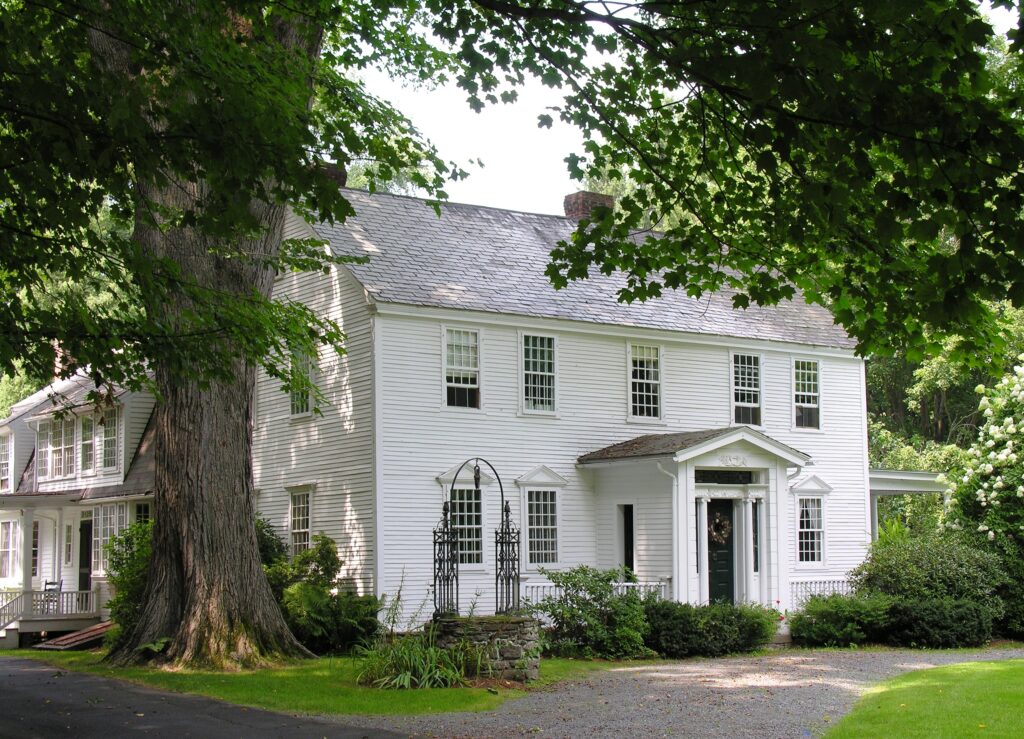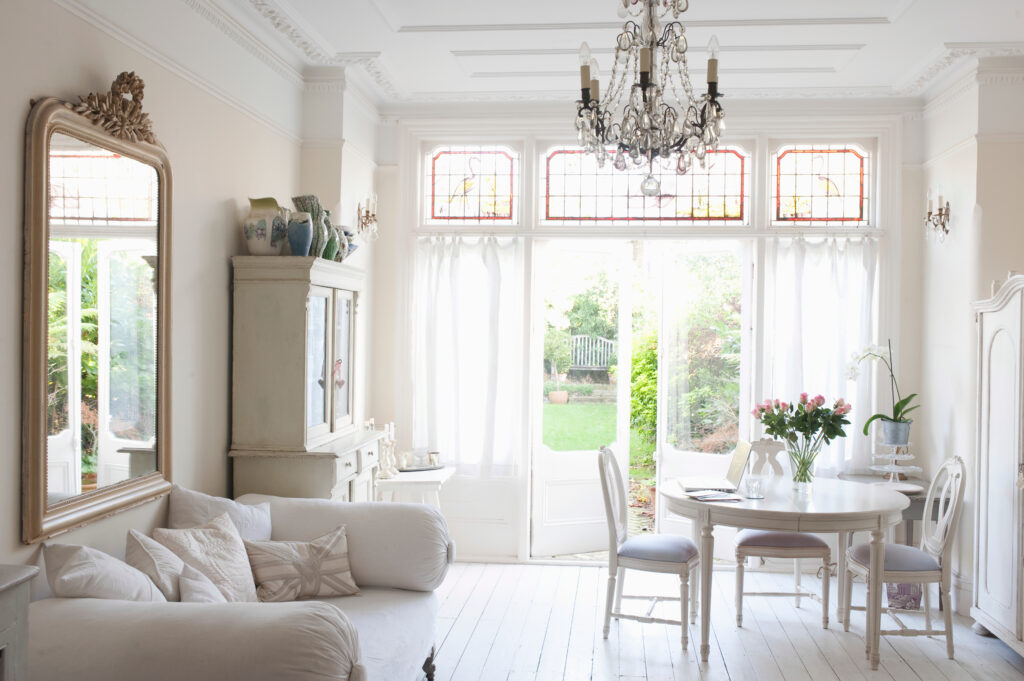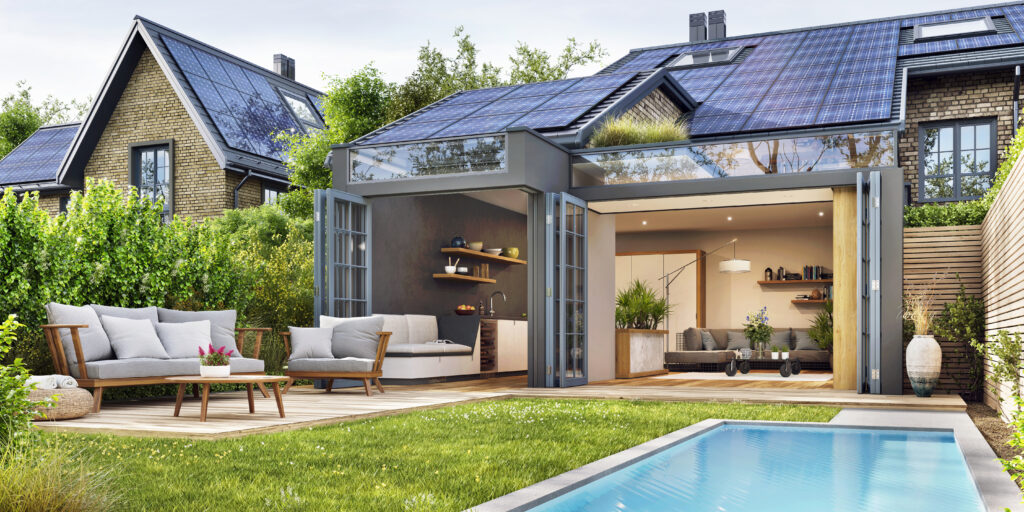
Things to Consider Before Hiring a Nanny
Things to Consider Before Hiring a Nanny How do you find a nanny who will be the right fit for your family? Should you offer
Older homes can offer charm and character, but also come with a unique set of obstacles when it comes to heating, cooling, and maintaining them. Whether you are looking to decrease your energy usage for the environment, or want to save on heating and cooling costs, here are a few steps you can take to potentially improve the energy efficiency in your home.
Why request an energy audit? When coming up with a strategy for home energy goals, it often helps to look at the whole picture. The age of your home, the square footage, your appliances, and many other features can play a role in your home’s energy usage.
Typically, the audit process involves a professional visiting the home, examining the exterior, and going through room by room. The professional can potentially help to identify air leakage and drafts, and can take into account the unique features of your home, as well as what opportunities there are to improve.
There are a number of companies and local governments that offer energy audits. As always, it is wise to check with the Better Business Bureau and other references before scheduling someone to come into your home. Before an audit, compile a list of problem areas in your home, such as drafty rooms or moisture you have noticed.
Roomy attics are common in older homes. Unfortunately, these big attics can also lack insulation or have inconsistent coverage. Heat naturally rises, meaning it will travel to the top of your home- and out any gaps that may exist. For this reason, some homeowners will prioritize addressing the insulation coverage in the attic first before moving to other areas of the house.
Consider hiring a reputable contractor to assess your insulation coverage to improve energy efficiency. Some contractors utilize infrared cameras during installation to see gaps. There are a few different types of insulation, and they each come with their pros and cons. Evaluating your home’s needs and the current insulation type you have with a professional can show you what your options are.

Many older homes have single-glazed windows, which are made with one pane of glass. While someone may think that installing newer, energy efficient windows can dramatically improve energy savings, there may be reasons to pause. First, installing new windows (depending on the number and installation rates) can be an investment that may take years of saving energy to earn back. Secondly, you may want to consider keeping your windows, but looking into solutions like secondary glazing or double glazing.
If you do decide to install new windows, you should consider the materials used in the new windows, as well as the warranty.
While your furnace or HVAC system may have some life expectancy left, there are some reasons to consider upgrading sooner rather than later. Newer HVAC systems are commonly more efficient as innovations have been made.

If your older home has bare floorboards, they could be letting cold air into your home. Some solutions to this include a thin foam for between the floorboard cracks, sealants, or placing rugs over the floors.
Deciding whether or not to install solar panels is a complicated question. The initial cost is one factor. Depending on where you live, utility approval and solar permitting can take months, and installation can add more time to the process. Another thing to consider is the pitch of the roof of your home and which direction it faces. These two factors will impact the efficiency of the solar panels if they are installed.
Despite this, there can be advantages to investing in solar for your home. Many states are offering incentives for homeowners to install solar panels. Depending on your location and energy use, installing solar panels potentially can lower your electric bill.
The cost of solar panels will be specific to your house, your local weather, and what type of solar system you choose. Grid-tied systems are typically more common, while off-grid systems are commonly viewed as the more expensive option.

As you make updates to your home, remember to review your insurance policy. At Cross Private Client Insurance, our agency understands the unique risks that come with historic or antique homes. We work with top insurance carriers to provide insurance options for our clients. Reach out to our team today if you have insurance questions.
___________________________________________________________________
This article is for general informational purposes only and is not to be relied upon or used for any particular purpose. Cross Insurance shall not be held responsible in any way for, and specifically disclaims any liability arising out of or in any way connected to, reliance on or use of any of the information contained in this article. The information contained or referenced in this article is not intended to constitute and should not be considered legal, insurance, accounting or other professional advice, nor shall it serve as a substitute for the recipient obtaining such advice. The views expressed in this article are that of its author and do not necessarily represent the views of Cross Financial Corp. and its subsidiaries and affiliates (“Cross Insurance”) or Cross Insurance’s management or shareholders.

Things to Consider Before Hiring a Nanny How do you find a nanny who will be the right fit for your family? Should you offer

Why You Should Consider Getting an Appraisal for Your Valuables and Collections Whether it’s sports memorabilia, watches, jewelry, fine art, one-of-a-kind musical instruments, or something

What to Know Before Taking Your Fine Jewelry on a Trip Special events, destination weddings, work events- what do all of these have in common?

A boutique personal insurance agency that focuses exclusively on customized risk management solutions for successful individuals and families. Protecting assets since 1923.